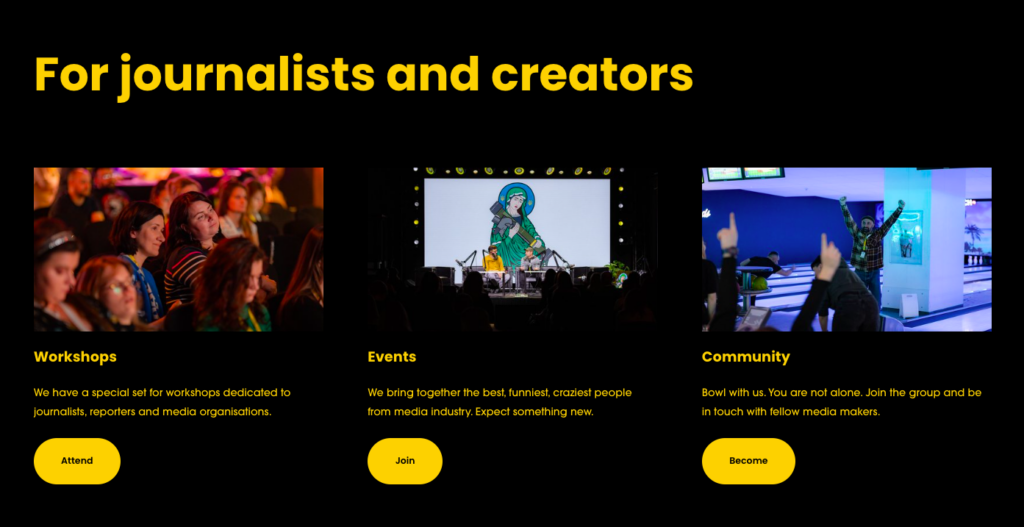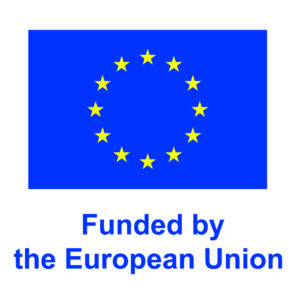About the network
Mixer believes that best journalism is achieved in a collaborative and inclusive way, when it’s open to many inputs, backgrounds and forms. There is too much focus on the business side of journalism and not on creating audience-oriented stories.
Projects
- Dot Kyiv – emergency access to internet and power in Kyiv;
- Mixer in Rzeszow – event design about war coverage;
- Mixer in Sarajevo – event about podcasting for Western Balkans.
Contact
Website: https://www.mixer.mediaName: Jakub Górnicki
Email: jakub@mixer.media
Network details
Size: 100+ members
Founded: 2022
Geographical focus: European
Type of members: Freelancers, Staff journalists
Legal entity: Yes
Open to new members: Yes
Subjects
- Climate
- Health
- Migration
- Politics / policy / democracy
- Social issues
Countries
- Albania
- Andorra
- Armenia
- Austria
- Azerbaijan
- Belgium
- Bosnia and Herzegovina
- Bulgaria
- Croatia
- Cyprus
- Czech Republic
- Denmark
- Estonia
- Finland
- France
- Georgia
- Germany
- Greece
- Hungary
- Iceland
- Ireland
- Italy
- Kosovo
- Latvia
- Liechtenstein
- Lithuania
- Luxembourg
- Malta
- Monaco
- Montenegro
- Netherlands
- North Macedonia
- Norway
- Poland
- Portugal
- Republic of Moldova
- Romania
- San Marino
- Serbia
- Slovak Republic
- Slovenia
- Spain
- Sweden
- Switzerland
- Türkiye
- Ukraine
- United Kingdom
Skills
- Data analysis / vizualisation
- Digital formats / multimedia production / interactive journalism
- Editorial support / project management
- Investigative journalism
- Multilingual journalism
Support/join our network
- Collaborate on editorial projects
- Collaborate on grant applications
- Exchange know-how/trainings
- Join as new members


